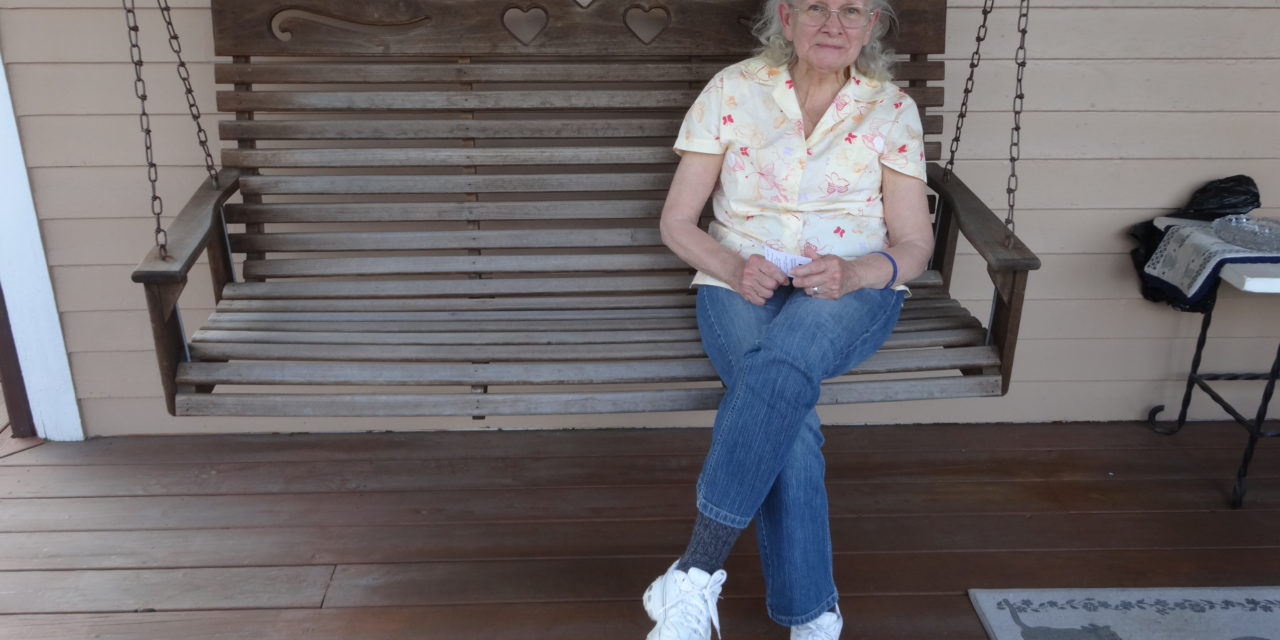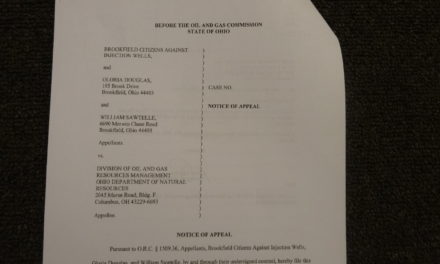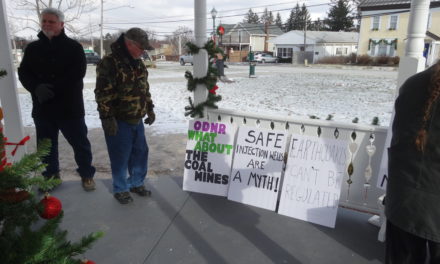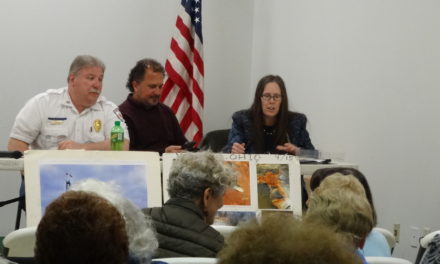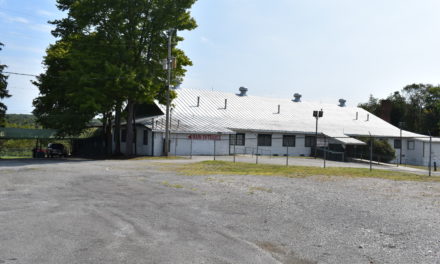Shirley Mosora has what to many people would be an ideal place to live.
She owns 30 acres, partly wooded, partly farmed, and with a pond stocked with bass and bluegill.
But she hasn’t had any takers on the property since it went up for sale last year. Prospective buyers like her property but, when they turn around to look across Route 7, they see the entrance to the Highland Field Services LLC injection well site.
“Anybody that looks at it, they love the property but they say, ‘Not with that going on,’” said Mosora, 86.
The “nice quiet place” she has lived in for 60 years is undesirable, she said.
Mosora doesn’t think the well construction can be stopped, but hopes that the local opposition effort will get noticed and help people in other parts of Ohio.
“Maybe we can stop it somewhere else,” she said. “It might deter them from doing this someplace else.”
Highland spokesman Rob Boulware said drilling of the first of five injection wells, intended for disposal of waste water generated by oil and gas drilling, began the last week of May.
Highland is working under additional conditions since a permit was initially issued last June.
A spokesman for the Ohio Department of Natural Resources did not respond to questions concerning why the additional conditions were issued, their significance or whether new information was received. Spokesman Steven Irwin said only that the conditions “changed regarding the drilling method” and that an ODNR representative will observe the drilling.
The company’s drilling plan changed to reflect “best practices that the parent company (Seneca Resources) has adopted in other regions,” Boulware said. The changes include installing a larger conductor casing and a longer intermediate casing, he said. Casings are made of either metal or concrete and separate the drilling hole and the surrounding environment.
The new permit also requires that Highland install a blowout preventer as “hazardous conditions may be encountered.” Boulware said the blowout preventer “is standard in most drilling operations and is something Highland intended to use.”
Highland also installed a 16-foot-high sound wall to reduce noise emissions, and brought a street sweeper to the site to clean dirt off Route 7. These and “other measures” were made “based on community interaction and feedback,” Boulware said.
The sweeper pushes dirt off to the side, which means it goes into yards and blows onto houses, said Gloria Douglas, a well opponent.
The first two well-drilling permits issued will expire June 21, but neither Boulware nor Irwin would address whether Highland is in danger of losing the second permit since only one well is in the process of being drilled. Boulware previously said only one well would be drilled to allow for testing, and that decisions on drilling the other four permitted wells would be made later.
Photo shows Shirley Mosora.

